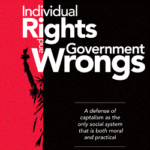danielpalos
Diamond Member
- Banned
- #1,641
You are the only one claiming that. Our federal Government hath not the Power to promote or provide for the general badfare, nor the general malfare, nor even the general warfare. Any questions?Can you find evidence that the writers of the Constitution intended it to be unlimited? That's been your challenge this whole time, and thus far you have failed miserably to do so.Our welfare clause is General not Common or Limited as implied by the right wing.1. Wartime allows the government more leeway to do things.Actually the federal government has did indeed built several cities during WWII the construction of Hoover dam etc.Nope, the federal government cannot build cities. That is a state function and authority.Of course it must limited to what is necessary and proper.The power of the federal government is limited, even for the "general welfare". Admit it.Only the right wing never gets it. Providing for the general welfare is not, unlimited since it must exclude the general badfare and the general malfare and even the general warfare.You have the greater fallacies. The writers of the Constitution clearly did not mean for the federal government to have unlimited power. It simply doesn't matter what you believe now.Our Constitution says what it means and means what it says.What did the writers of the Constitution mean by the term, "General Welfare"? We've posted quotes establishing that and you've ignored those quotes in favor of your own fallacies.Any exigency that may need to be addressed by the public sector must be done in manner which provides for the general welfare.Until you resolve the question of what they actually meant by that term, you will always have the greater fallacies.We the People of the United States, in Order to form a more perfect Union, establish Justice, insure domestic Tranquility, provide for the common defence, promote the general Welfare, and secure the Blessings of Liberty to ourselves and our Posterity, do ordain and establish this Constitution for the United States of America.The Constitution spells out which direction public policies should take, for example the second amendment which specifies that individuals can own firearms, and the tenth which specifies that every power not explicitly granted to the federal government is reserved to the states and the people.That is your misconception. I am stating that our Founding Fathers provided the goals we should strive for whenever we are unsure of which direction public policies should take.Let's reel you back in for a moment. Why do you believe a phrase found in the preamble to the Constitution has more power and credence than the actual text of the Constitution?
Until you resolve the question of what they actually meant by that term, you will always have the greater fallacies.
A power to destroy the freedom of the press, the trial by jury, or even to regulate the course of descents, or the forms of conveyances, must be very singularly expressed by the terms "to raise money for the general welfare."
New cities in more optimum locations!
2. The federal government has done many things it is not explicitly authorized to do. See Abraham Lincoln.



